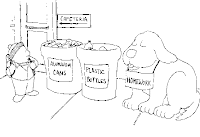
This week's song of the week is "
We Are the World" - a 1985 song written by
Michael Jackson and
Lionel Richie, produced and conducted by
Quincy Jones and recorded by a super-group of popular musicians billed as USA for Africa. The charity single was intended to raise funds to help famine-relief efforts in Ethiopia, which experienced unusual drought in 1984/1985.
Lead vocals were rotated among 21 of the performers, including Lionel Richie, Stevie Wonder, Paul Simon, Kenny Rogers, James Ingram, Michael Jackson, Diana Ross, Tina Turner, Billy Joel, Willie Nelson, Dionne Warwick, Steve Perry, Bruce Springsteen, Al Jarreau, Huey Lewis, Cyndi Lauper, Bob Dylan, Kim Carnes and Ray Charles
To see a video of the song go here:
Video: We Are The WorldTo read the Lyrics go here:
Lyrics: We Are The WorldTo get the song go here:
Song: We Are The World
 This week’s song of the week is “Bounce Back” a song by CCM superstar Stacie Orrico from her self titled 2003 CD Stacie Orrico. Released as a single from the CD the song talks about bouncing back after a bad relationship [or at least after being badly let down by someone]. Not great, not bad, it nonetheless fits this weeks theme like a glove…
This week’s song of the week is “Bounce Back” a song by CCM superstar Stacie Orrico from her self titled 2003 CD Stacie Orrico. Released as a single from the CD the song talks about bouncing back after a bad relationship [or at least after being badly let down by someone]. Not great, not bad, it nonetheless fits this weeks theme like a glove…
























